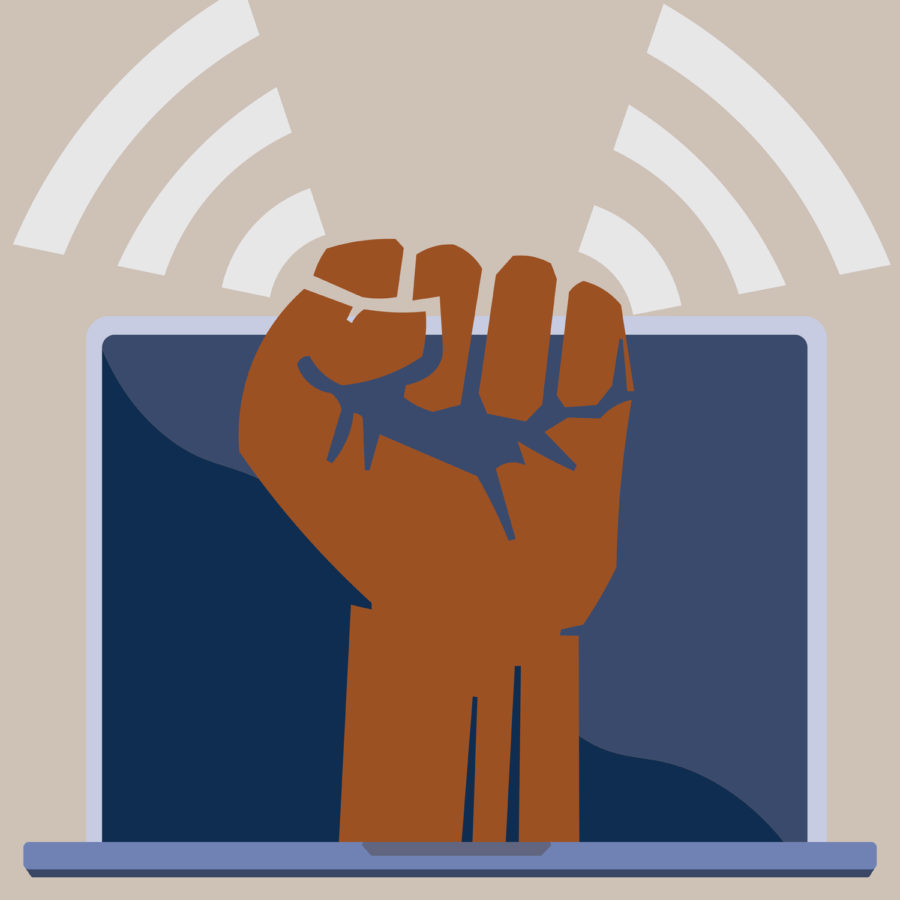Opinion | Online call-out culture cancels real activism
January 25, 2019
Whether he is praised or criticized, the president is known for his tweeting.
Donald Trump is not the only American who utilizes social media platforms to express political viewpoints, though.The second presidential debate between Hillary Clinton and Trump sparked 61.67 million interactions among Facebook and Twitter users.
But all too often, social media users and political figures participate in call-out culture by personally attacking online users for their political opinions. While many people utilize social media to engage in productive political activism, using social media to trade insults is fuelling a breakdown of political discourse.
The use of social media in politics has helped constituents gain more direct access with their representatives while opening new ground for political discourse. At its core, Zehra Khan, sophomore political science and English literature student, felt social media gave activists another medium to convey political messages.
“Even though the traditional definitions of political activism include attending marches, calling Congresspeople and so on, in today’s world, social media is great addition,” Khan said. “Something as simple as sharing an important piece of information on your Instagram story can make a profound impact on the lives of other people.”
There is no shortage of research that demonstrates the impact social media can have on shaping political engagement and perspectives. A Pew Research Center found individuals changed their opinions from social media exposure on the topics of Hillary Clinton (21 percent), Donald Trump (18 percent), Bernie Sanders (8 percent) and gun policy (6 percent).
20 percent of social media users in a Pew Research study said their views were altered by posts they saw on social media. Graphic by Elizabeth Seward | Staff Graphic Artist
Benjamin Case, a political sociology doctoral candidate and professor of sociology at Pitt, feels that political expression on social media can be activism.
“Political activists are people who participate in attempts to wield collective power from below in order to change something about society,” Case said. “We see it as an informed choice, something a person chooses to engage in, or not, based on something they think should be different about society.”
Social media has helped inform the American people of the current political agenda, as well as motivate students to engage in political activity. But for as much good as it has done, social media has also become a mechanism for people to viciously attack the character of one another with little to no rules or penalties.
“Whether [social media] is helping or hurting a cause really depends on the cause, and how it is being used,” Case said.
“I really do think social media can be good for political activism and expression,” junior marketing major Karleigh White said. “But, when you go on Twitter, and you see people just viciously attacking each other, it seems like they are just trying to hurt each other.”
And regardless of whether they hurt their opponents feelings, politicians often use harsh, exaggerated commentary in an effort to gain attention from the general public. This is most easily accomplished on platforms like Twitter. One of Clinton’s most widely shared tweets is her telling Donald Trump plainly, “Delete your account.”
“The real game is hardening your own support in ways dramatic enough to be picked up by the mass media … the easiest way of doing that is to pick a rollicking fight,” Gaby Hinsliff wrote in the Guardian.
Politicians and constituents using social media to sling personal attacks are damaging productive political discourse linked to shaping perspectives. Hatred and useless bickering water down empowering activism, and when people abuse the term activism and get caught up in petty jabs at others and hurtful call-out culture, it takes away from their legitimacy as activists.
If people want to use social media for activism, they need to understand the fine line between the intention to help a political cause and the intention to hurt someone else.




